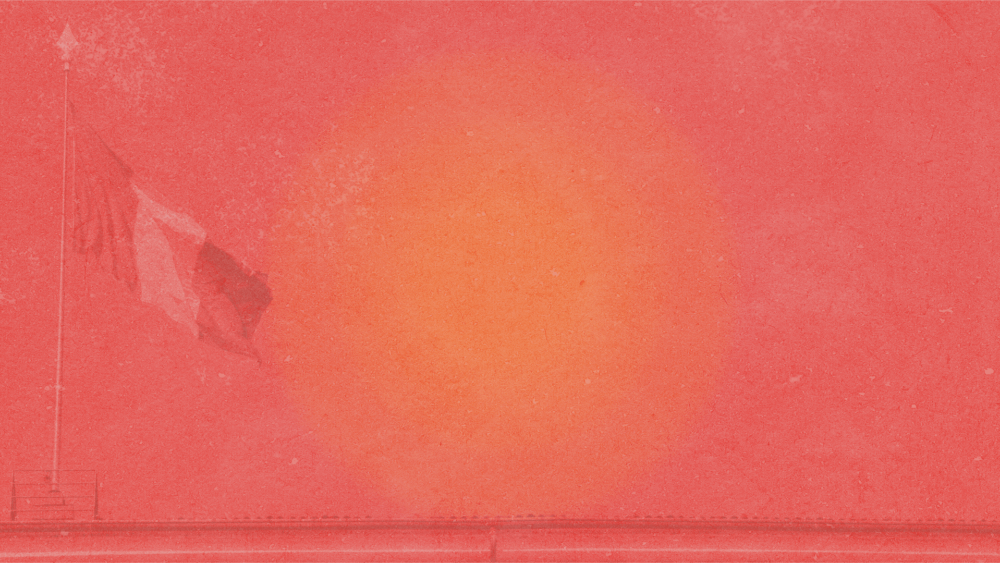This weekend, Italians will head to the polls for what will be the most unusual general elections we have had in the country’s republican history.
A lacklustre election campaign has unleashed little enthusiasm and reinvigorated the lack of trust that Italian citizens now have in their representatives.
The right, certain of victory, has preferred to keep a low profile to avoid the polarising effect and a “Republican pact” by its opponents. Few ideas – tired, old and outdated – lots of reassurances and a few small problems of fascism revealed too early. They know they will win, and by a large margin.
The only uncertainty lies in the internal balances: if Fratelli d’Italia does not keep allies to a minimum it runs the risk of providing enough numbers for a new technical government (PD + centrists + Forza Italia + part of the Northern League) and this is the only bogeyman they want to avert.
The novelty of the neoliberal side is hoping for a low turnout to inflate a result that, according to polls, will be between 5-7 percent, very little considering that they have dominated every newspaper and news headline for more than two months.
Their promise to the PD was: run alone and attack the PD in order to wrestle votes from the right-wing but they have already declared themselves largely willing to govern with Giorgia Meloni if necessary after the vote (and no one raised an eyebrow, so great was the surprise).
The Democratic Party, seeing itself caught up in the polls by the 5-Star Movement, has given its campaign a leftward swerve, but the credibility of those who disavow their own policies of the past 10 years in the few months before the vote is zero.
Their lists remain full of characters and parliamentarians who remain faithfully liberalists, and no one really expects them to make a sudden conversion once elected. The Democratic Party remains primarily responsible for the policies that have crippled the country in the recent past, and this will hardly be forgotten.
The Left-Greens list has chosen to ally with the Democratic Party and in doing so has made a tactical choice that nullifies all its credibility and political identity.
The project is purely electoral and with the only stated goal of sending a sparse patrol to parliament.
They will have no chance of shifting the PD’s centre of gravity to the left, nor of bargaining progressive and ecological policies in a possible governing coalition.
The sole purpose of this operation is to allow the survival of failed political projects and their equally failed leaderships.
The 5 Star Movement is on a slight upswing in the polls (more because of the very poor quality of mainstream alternatives) and is trying to relaunch itself as an alternative to the system after steadily losing internal components for five years that underscored the ideological inconsistency of its starting point, but after governing with the Northern League and with Draghi (in a government which turned out to be absolutely inconsistent and with no bargaining strength) they have repeatedly shown that they have betrayed the initial spirit of the movement and are unable to effectively represent the change of direction that Italy needs.
The fact that their only minister (Roberto Cingolani, a climate denier at the Ministry of Ecological Transition) now circulates as a possible name for a Meloni government speaks volumes about their effectiveness in government.
The only entity outside Parliament is the People’s Union list, which managed to collect the signatures needed to present itself despite the very short time available thanks to a commendable effort by its activists.
The political proposal is the only one worthy of note as an alternative to the status quo in which we live, but the genesis of the project, born close to the elections in the wake of Jean-Luc Mélenchon‘s French presidential result, and the unpredictability of its leader’s choices have shown more than one limitation for a credible and long-lasting opposition project.
This election thus comes with a political offering that we call “poor” only as a courtesy. They will easily be the elections with the lowest turnout ever: the country is experiencing problems so big and so unheard of by the media and political circus that, despite decades of numbness and addiction due to the small circle of journalists who decide the agenda setting of public discourse, it really can no longer see itself represented by ideas, speeches, politicians who reek of the old, elitist, oligarchy.
DiEM25 knows this and plays an important part in the network of more than 600 associations and social realities that are organising a large demonstration in Rome on November 5 to finally give visibility to a growing chunk of the country that can no longer wait, and that absolutely does not feel represented.
DiEM25 is building across Europe a radical, rational and credible party alternative that can bring that change across the continent and in individual nations that we so desperately need, starting with Greece (where we already sit in Parliament), to follow in Germany and soon in Italy and other countries.
For weeks now we have been listing on our social media channels the many issues and proposals that we believe are critical to improving our lives, with the Let’s Talk Serious campaign.
Some of these issues are also part of the programmes of some of the forces listed earlier, which we will be voting on Sunday.
But from the day after, a new season begins.
A season of struggle, of opposition, sure.
But it will have to be a season in which we will shed light on so many lies that have been fed to us for years, a season in which DiEM25 will be there, on the front lines.
Do you want to be informed of DiEM25's actions? Sign up here















